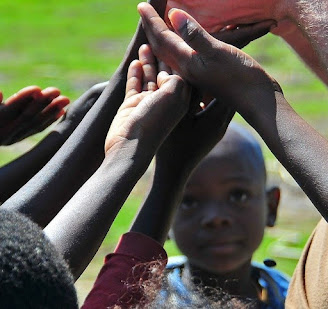Nurturing Creativity during Covid-19: Have You Tried ScratchJr?
My daughter, Gabi, began working with ScratchJr about two weeks ago; the intensity of my longing for the moment she realized the potential of this coding platform for young children is on par with my eagerness for her to enter the wizarding world of Harry Potter. Knowing her well, I’m confident both experiences will blow her mind and nurture her creative spirit.
ScratchJr was created and is maintained via a collaboration between the DevTech Research Group at Tufts University, the Lifelong Kindergarten Group at the MIT Media Lab, and the Playful Invention Company. Professor, Mitchel Resnick, heads up the MIT Media Lab where he developed the original version of this coding platform for older learners (Scratch). In his book, Lifelong Kindergarten, Resnick (2018) acknowledges America’s highly problematic obsession with standardization and standardized testing and he poses the question,
“How can we encourage and support creativity in an era when standardized exams set the agenda for classroom activities?” (pp.150).
He explains that those controlling schools largely don’t know how to measure creativity well and so they fall back on measuring what they do know how to measure (e.g., the memorization of facts) in an effort to hold schools and teachers accountable for students’ learning. Consequently, what is measured is what becomes the focus of schooling: “‘We treasure what we measure’” (pp.151).
Resnick calls for documentation of children's creations-their projects-and he refers specifically to the famous documentation process refined in the early childhood centers of Reggio Emilia, Italy. Reggio schools highly value creativity and democratic processes. It is through the documentation of children’s projects that we can better understand their creative efforts (what they created, how they created it, and why?). And yes, this kind of documentation could be used for purposes related to accountability; however, of far greater importance, is the potential for better preparing adults to respond to children’s creative endeavors and the potential for children to better support their peers working on similar projects.
There is no question that the obstacles faced by teachers and parents tasked with educating America’s children in the midst of the pandemic are unequivocally severe, but perhaps the resultant wave of support for changing inequitable education policies is also unequivocally severe. Teachers unions, for example, are more vocally demanding that their state departments of education exempt schools from mandatory standardized testing. Many students’ limited access to technology, the internet, and parental support (among other factors) have been magnified during the pandemic, adding significant weight to the claim that high-stakes testing is egregiously unjust. If efforts like this one are successful, it may be difficult to reinstate traditional standardized tests.
Additionally, time spent quarantining has permitted me to support my daughter’s creative endeavors. Before she was immersed in ScratchJr, she worked for weeks on creating an indoor garden, an outdoor garden, a fish tank mural, a virtual fish tank and an actual fish tank. Never once did I have to push her to complete these projects. She sprung out of bed and was ready to go because they were her projects. I did support her with opportunities to extend her learning (e.g., National Geographic Kids texts and videos), and I made suggestions about strategies she could try when she got stuck, but she remained in the driver’s seat of her own learning.
All children should be afforded the autonomy and support to pursue their passions and propel their learning. Perhaps if testing is put on hold this year, more of them will get that chance. In the meantime, while they’re at home, we can offer them tools to construct their own learning; ScratchJr and Scratch are two apps we can trust to invite and expand children’s creative capacities.




Comments
Post a Comment